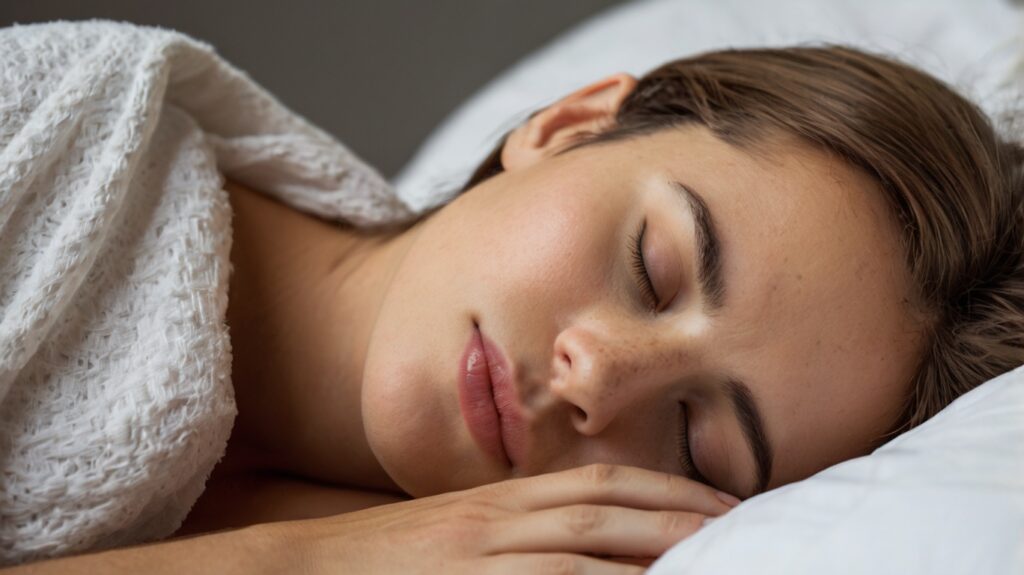Quality Sleep: A Pillar of Mental Wellness

Hey there! Are you curious about how sleep affects your mood and overall mental health? At Vibrant Fitness, we’re here to break it down for you in a way that’s easy to understand. Let’s dive into why a good night’s sleep is super important for feeling happy and healthy!
Why Sleep is Important for Mental Health
Imagine your brain is like a smartphone. Just like your phone needs to charge to work properly, your brain needs sleep to stay sharp and focused. When you sleep well, your brain can:
- Think Clearly: Just like how your phone runs better with a full battery, your brain works better when you get enough sleep. You can solve problems, make good choices, and remember things more easily.
- Manage Emotions: Sleep helps you stay calm and handle stress. When you’re well-rested, you can deal with tough situations without getting too upset or anxious.
When you don’t sleep well, it’s like having a phone with a low battery—it doesn’t work as well, and you might feel grumpy or have trouble focusing.
The Magic of Deep Sleep
Deep sleep is like the superhero of sleep stages. It’s when your body and brain get the most rest and repair. Here’s why deep sleep is so awesome:

- Emotional Balance: Deep sleep helps you stay happy and less stressed. It’s like pressing the “reset” button for your mood.
- Brain Cleanup: During deep sleep, your brain gets rid of waste and repairs itself, which helps you think and learn better.
- Stress Relief: Deep sleep helps control hormones that affect your stress levels, so you wake up feeling refreshed.
To get more deep sleep, try to go to bed and wake up at the same time every day, and make your bedroom cozy and dark.
Tips for Better Sleep
Want to get the best sleep ever? Here are some easy tips from Vibrant Fitness to help you rest well and feel great:
- Stick to a Routine: Go to bed and wake up at the same time each day, even on weekends.
- Create a Relaxing Bedtime Routine: Do calming things before bed, like reading a book or taking a warm bath.
- Make Your Bedroom Sleep-Friendly: Keep your room dark, quiet, and cool. You can use blackout curtains or a white noise machine if you need to.
- Limit Screen Time: Avoid using phones or tablets before bed because the blue light can make it harder to fall asleep.
- Watch What You Eat and Drink: Avoid caffeine and big meals before bedtime.
By following these tips, you’ll be on your way to getting better sleep and feeling awesome!
How Lack of Sleep Affects Your Brain
When you don’t get enough sleep, it’s like trying to run a video game with a slow internet connection. Here’s what happens:
- Trouble Focusing: It’s hard to pay attention and stay alert.
- Memory Issues: You might forget things more easily.
- Poor Problem-Solving: It’s tougher to figure things out.
- Slow Reactions: You might be slower to react, which can be dangerous.
Getting enough sleep helps keep your brain sharp and ready for anything!
How to Improve Your Sleep for Better Mental Health
Here’s what you can do to improve your sleep and boost your mental health:
- Eat Healthy: A balanced diet with fruits, veggies, and lean proteins helps you sleep better.
- Limit Alcohol and Caffeine: Avoid drinking these close to bedtime.
- Create a Cozy Sleep Space: Get a comfy mattress and pillows for a good night’s sleep.
- Manage Stress: Do things that help you relax, like exercising or practicing mindfulness.
- Get Help if Needed: If you have trouble sleeping, talk to a doctor for advice.
These changes can help you sleep better and feel happier!
Conclusion: Sleep and Mental Health with Vibrant Fitness
At Vibrant Fitness, we know that good sleep is just as important as a great workout for your mental health. By understanding the link between sleep and mental well-being, and following these simple tips, you can improve your mood, boost your brainpower, and enjoy a healthier life. So, let’s get some quality rest and wake up ready to tackle the day! Check out our other blog posts and resources.






